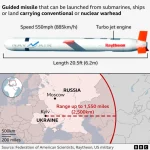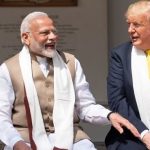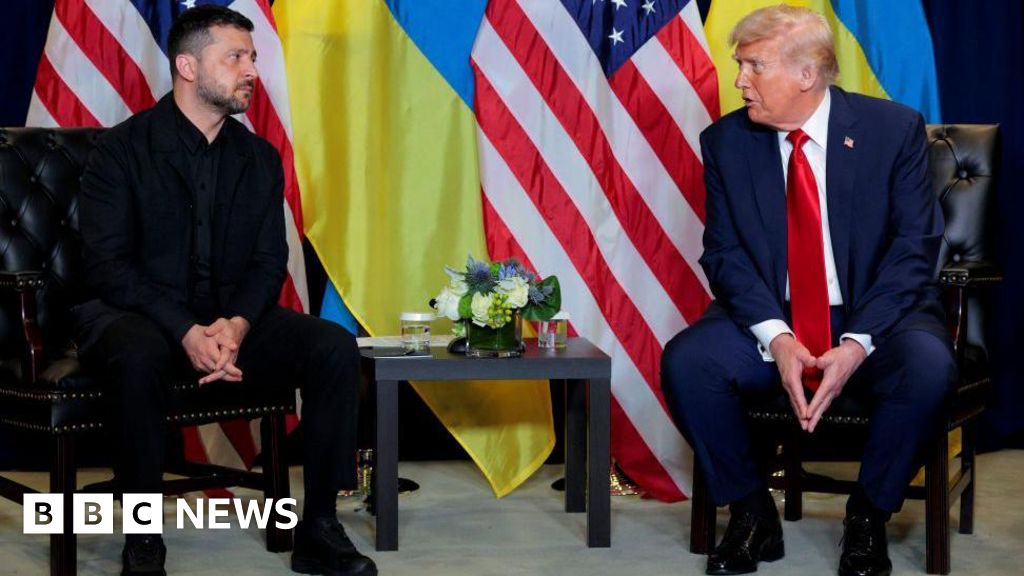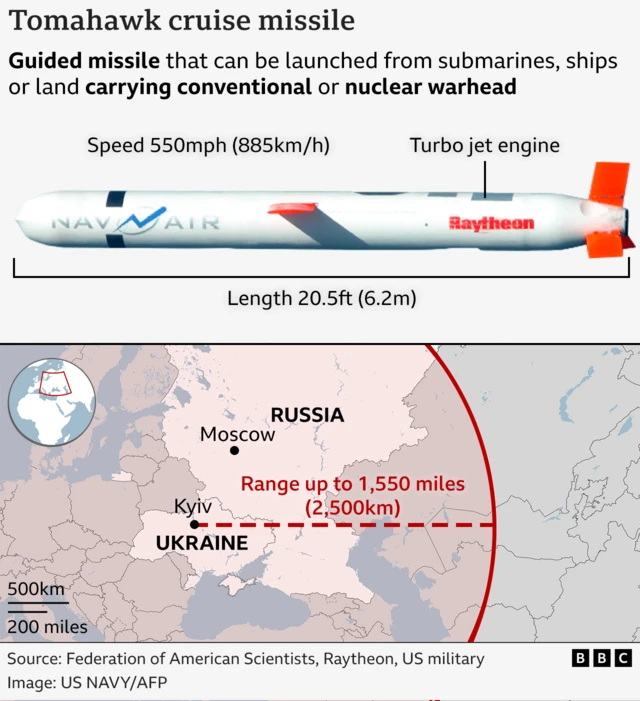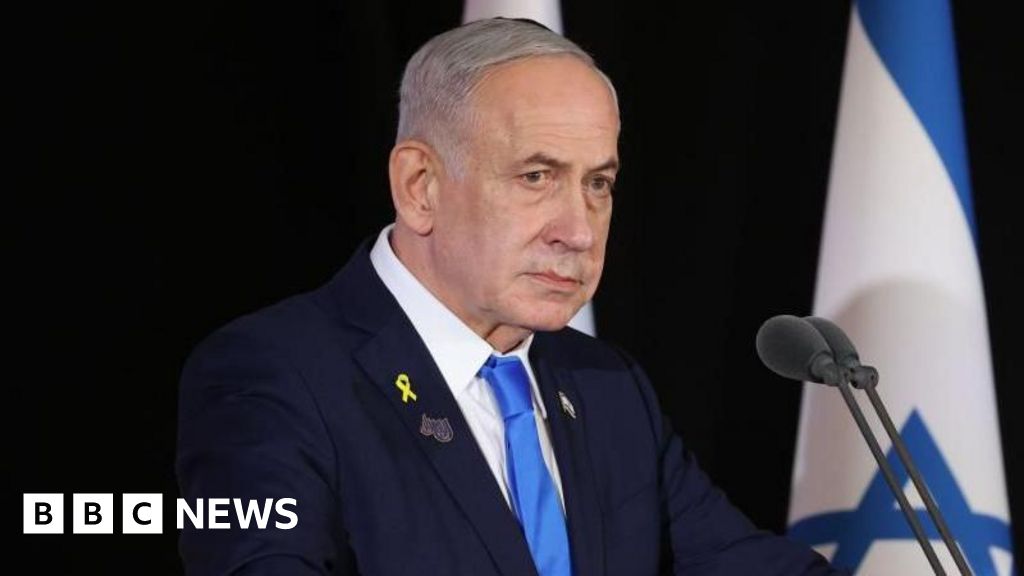News of the phone call between US President Donald Trump and Russian President Vladimir Putin on Thursday, in which they agreed to meet in person to discuss the war in Ukraine, will have come as an unwelcome surprise to Kyiv.
The country is being hit hard.
The last 24 hours alone have seen Russia launch dozens of missiles and more than 300 drones at multiple targets.
Once again, they include a large amount of civilian infrastructure with further damage to the country’s gas supply network, just as the first signs of cold herald a long, hard winter ahead.
Attacks on the electrical grid are already leading to nationwide power outages.
For Ukraine’s government it’s a sign of Russian desperation.
The frontlines are at effective stalemate, involving huge loss of life for incremental territorial gains.
And the Russian economy is feeling the effects of the Ukrainian military’s increasingly effective drone strikes on oil depots.
So, President Volodymyr Zelensky’s big hope was for more American military assistance to keep up that pressure.
Before he boarded his plane to Washington, he seemed to believe that things were going his way.
There was optimistic talk about Trump beginning to see the world through Ukraine’s eyes, a big shift from that angry, humiliating Oval Office exchange in February when he accused Zelensky of “gambling with World War Three”.
The failure of the Trump-Putin Alaska summit in August and the intensifying bombardment of Ukraine were – it was thought – all causing the US president to lose patience with his “good friend”, as he has called Putin.
There were high hopes that Friday’s meeting would finally yield the prize Ukraine has been seeking – Trump’s permission for the purchase of long-range Tomahawk missiles.
Trump’s frustration with Putin was obvious on Sunday when he told reporters: “Do they [Russia] want Tomahawks going in their direction? I don’t think so.”
But how much of a game changer the missiles would really be is in much dispute among military experts and, with the complicated logistics, it could be months before they were deployed.
But at the very least they would add to Ukraine’s ability to strike deep into the heart of Russia and with a much more powerful weapon than any it currently possesses.
They would also send a potent physical message to Putin about America’s shifting allegiances.
So, the two-and-a-half-hour Trump-Putin phone call, that took place while Zelensky was in flight, somewhat steals a march on the Ukrainian president’s big moment.
So far, though, he’s putting something of a brave face on it, suggesting in a post sent on his arrival in Washington that Russia was panicking.
The Kremlin was “rushing to renew dialogue”, he said, precisely because of all the talk of the Tomahawks.
Other analysts will see less panic and more of a classic Putin play at work in the phone call, which was said by the Kremlin to have taken place at Russia’s behest.
The issue of the Tomahawks was indeed discussed, with Putin reinforcing his view that their deployment would be seen as a significant act of provocation.
The two men apparently discussed the “colossal prospects” – in Russia’s words – for trade if peace were achieved.
And then they agreed to their summit in Hungary. That will probably happen within the next two weeks, Trump said.
As Ukraine faces its fourth winter of war, few people here had much belief in Trump’s claim that he could turn his “success” in the Middle East into momentum towards peace in Ukraine.
One woman I spoke to, badly injured in a Russian strike on a civilian railway carriage, shrugged her shoulders when I asked her if she saw an easy way out.
“A person like Putin can’t be trusted,” she told me from her hospital bed.
After touching down in Washington on Thursday evening, Zelensky met representatives of defence companies who produce the powerful weapons he says he needs to strengthen Ukraine’s protection.
He will still ask the White House for the Tomahawks.
But Trump’s willingness to give them was always in doubt and must, surely, be now further called into question.
Meanwhile, Russia is being given something.
A familiar pattern is developing. Every time Trump grows increasingly frustrated with Putin’s intransigence over Ukraine he is then placated by a conversation with the Russian president.
Each time they speak he seems to be persuaded of Putin’s point of view and backs off his threats to apply tougher sanctions or supply more destructive weapons.
The Hungary summit, offered without concessions, doesn’t look like much of a loss of American patience.
Never mind the Tomahawks.
For now, Ukraine has been given a long-range curveball instead.



